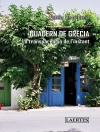In ’A Sentimental Journey Through France and Italy, ’ Laurence Sterne ventures into the realms of the travel narrative with an innovative and deeply personal lens. The book is notable for its introspective and digressive prose, blending elements of sentimentality, humor, and philosophical reflection. Sterne employs a stream-of-consciousness style that invites readers into the emotional landscape of his journey, transcending mere geographical description to explore the human condition. This rich tapestry of thoughts and experiences reflects the 18th-century movement of sentimental literature, which often emphasizes emotion and individual experience as central to understanding humanity. Laurence Sterne, an English novelist and clergyman, is best known for his earlier work, ’Tristram Shandy, ’ which established his reputation for playful narrative techniques and a profound engagement with the subjectivity of storytelling. His own experiences as a traveler and his keen observations of the European social landscape converge in this work, revealing both his personal vulnerabilities and the broader cultural contexts of his time. Sterne’s unique blend of satire and pathos illuminates the intricacies of travel and its impact on the self. Readers who seek to delve into a narrative that intricately weaves travel, sentiment, and introspection will find Sterne’s work profoundly rewarding. ’A Sentimental Journey Through France and Italy’ serves as a seminal exploration of the interplay between place and memory, making it essential for anyone interested in literature that captures the essence of human experience through the lens of travel.
Om författaren
Laurence Sterne was an Irish-born English novelist and clergyman, celebrated for his vivid writing and inventive narrative techniques. Born on November 24, 1713, in Clonmel, County Tipperary, Ireland, Sterne spent much of his life in England and is best known for his novel ’The Life and Opinions of Tristram Shandy, Gentleman’. This work broke from the narrative conventions of the day with its digressive style and meta-fictional playfulness, gaining both acclaim and notoriety for its bawdy humor and philosophical depth. Sterne’s ’A Sentimental Journey Through France and Italy’ is similarly experimental, blending travel writing with psychological characterization. Published just weeks before Sterne’s death on March 18, 1768, this novel was also well-received and influential, foreshadowing the Romantic movement’s valorization of emotion and subjectivity. His literary style, rich with irony, digression, and reflexivity, has made an enduring impression on modern narrative and has been studied for its contributions to postmodern literature. Sterne’s writings, characterized by their wit and experimentations with the novel form, stand out as a bridge between the early narrative traditions of the 18th century and the burgeoning literary modernity of subsequent generations.












